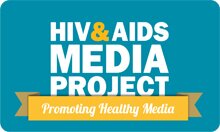Socio-Environmental Context
Poor environmental conditions accelerate the progression from HIV to AIDS, by exposing an already weakened immune system to a host of dangers.
The social and behavioral factors which link poverty and HIV are well documented. Transactional sex and migrant labour frequently feature in articles which seek to explain why the poor are disproportionately affected by HIV. What merits equal consideration is how poverty and its attendant poor environmental conditions can affect the HIV-positive individual at the biological level.
HIV attacks and weakens the body’s immune system leaving it vulnerable to opportunistic infections. AIDS (Acquired Immune Deficiency Syndrome) is the final stage of HIV infection and as a syndrome it is characterised by the collection of opportunistic infections which affect the body once the immune system has been destroyed by HIV. This is why individuals with HIV are more likely to suffer from TB (tuberculosis), pneumonia , thrush, bladder infections and shingles among other conditions.
Poor nutrition, overcrowding, inadequate sanitation and lack of access to clean water can all expose HIV positive people to a host of diseases and conditions.
Inadequate nutrition resulting from poverty further weakens the immune system, increasing the HIV-positive individual’s risk of contracting the opportunistic infections which are associated with AIDS. The same is true for living in over crowded informal settlements. Over crowding is often associated with poverty and diseases such as TB spread easily in small over populated areas, putting the HIV-positive person at greater risk. Lack of access to clean water and poor sanitation are also environmental factors which have the potential to affect the health of an HIV positive person.





